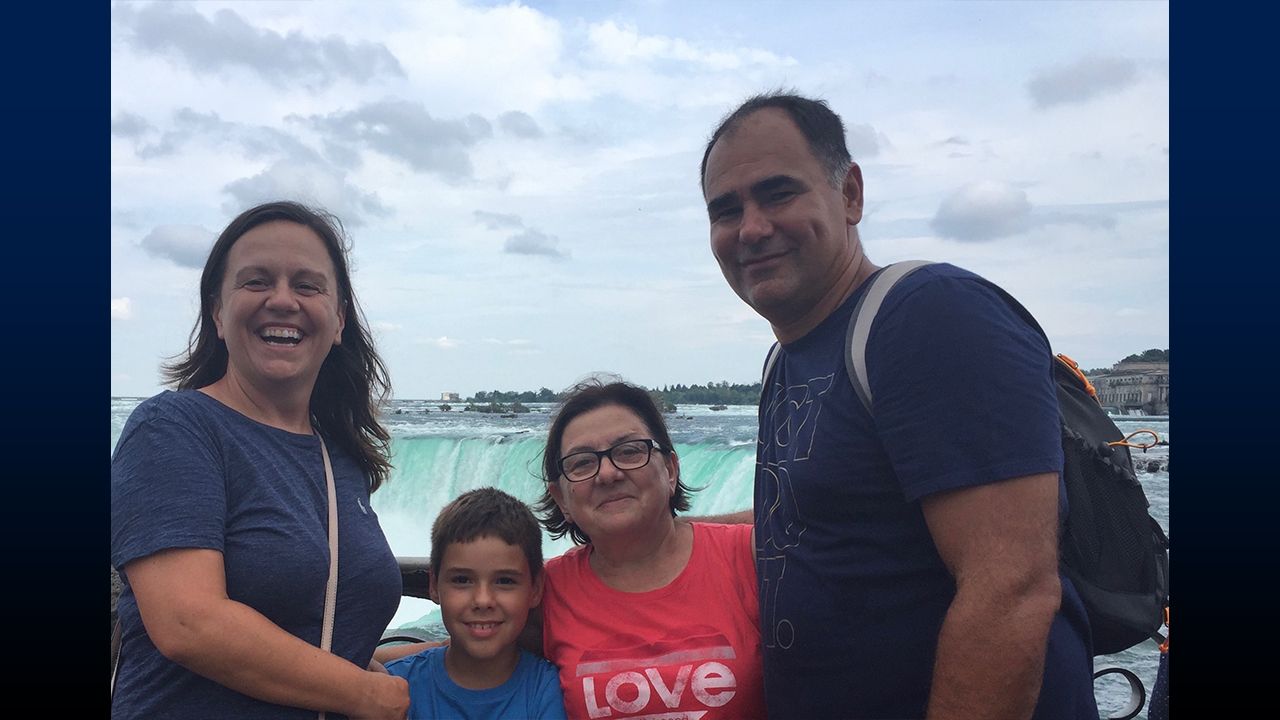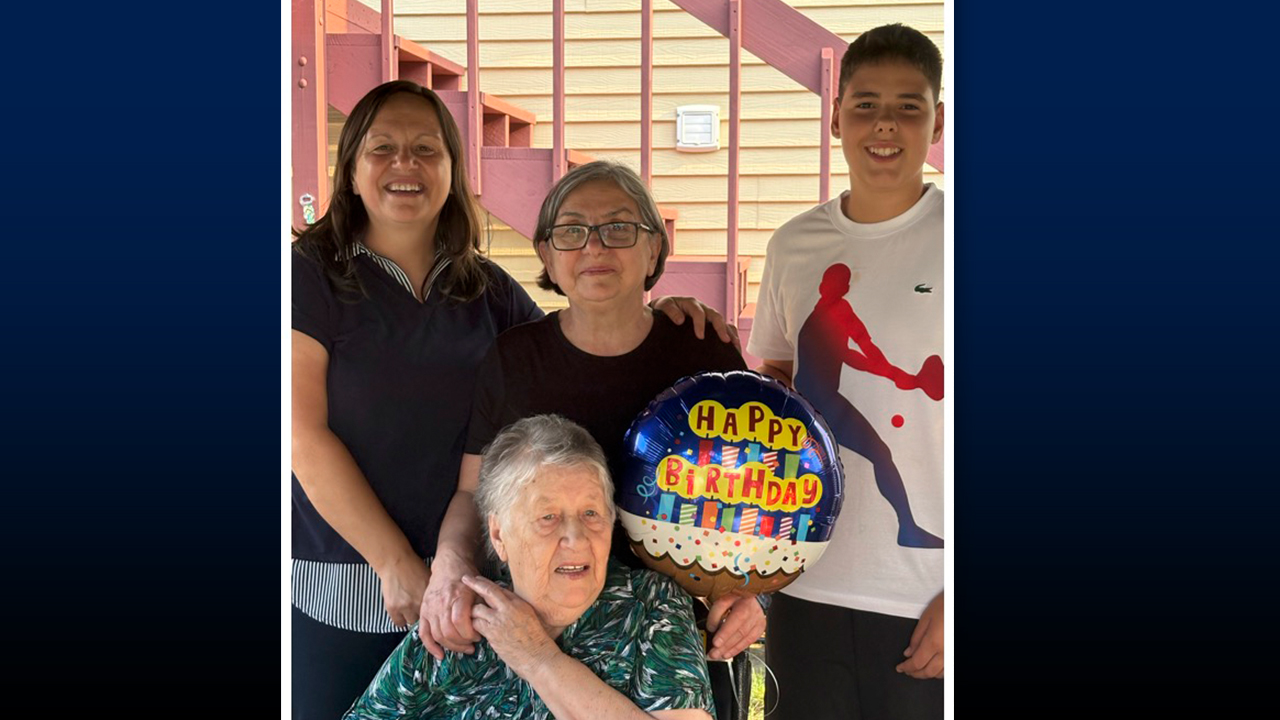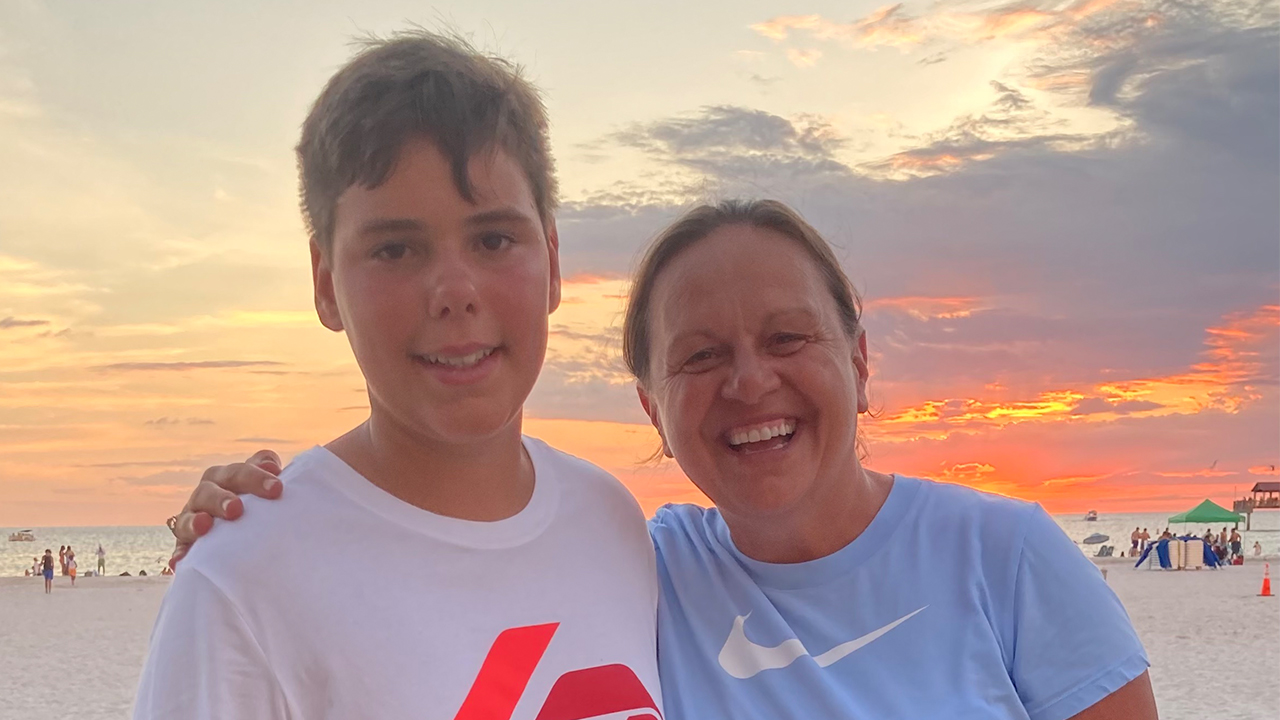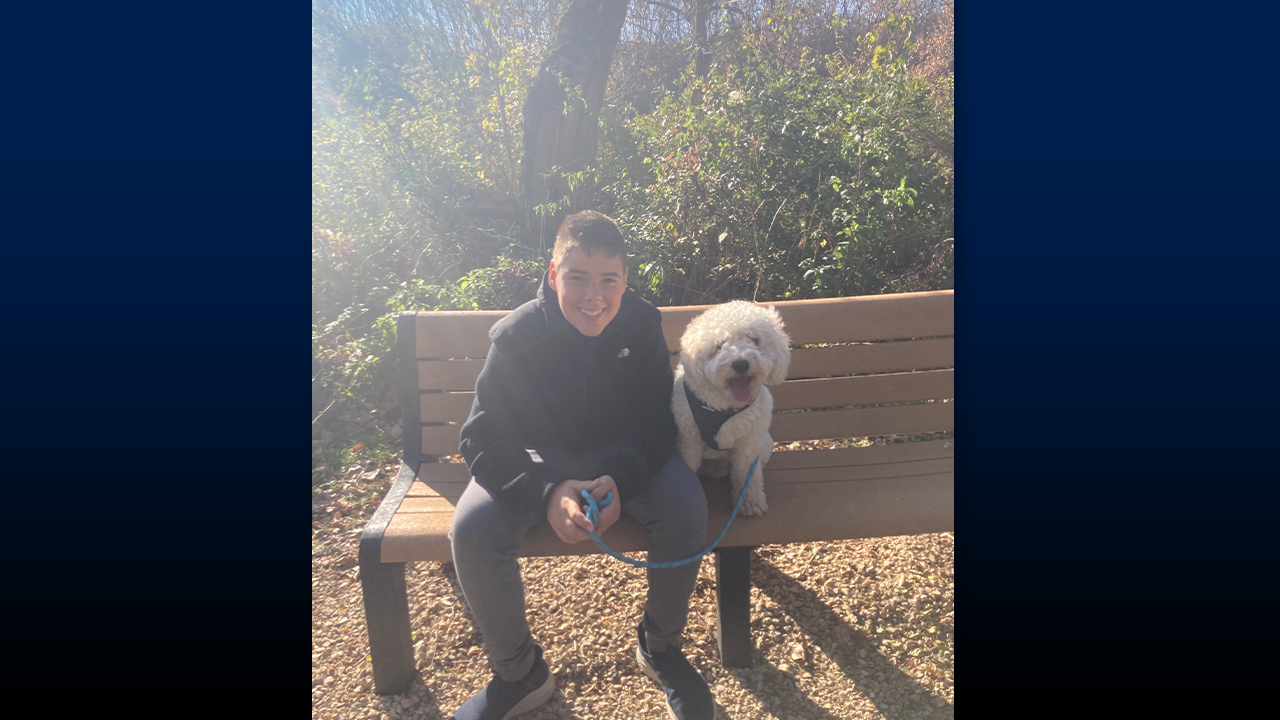



At Convocation each year, the University of Wisconsin-Platteville honors faculty and staff with UW-Platteville and Universities of Wisconsin awards, recognizing their excellence and dedication. In this year’s articles about the recipients, we are spotlighting their journeys, passions and the paths that brought them here.
Dr. Leonida Ljumanovic, professor of mathematics at the University of Wisconsin-Platteville, has been honored with the Faculty Award for Teaching Excellence. The purpose of the award is to recognize a tenure track faculty member who has made distinguished contributions to the mission of UW-Platteville as an outstanding teacher.
Q: What is your title and how long have you been with UW-Platteville?
My title is professor, and I have been with UW-Platteville for 17 years.
Q: Congratulations on the Faculty Award for Teaching Excellence! Is there a particular breakthrough, project, or moment in your career that you feel led to this recognition?
Thank you! I believe that anyone can accomplish anything they set their mind to, as long as they are willing to work for it. I strive to instill this mindset in my students as well. Additionally, I believe that motivation plays a crucial role in students’ learning. Therefore, my goal as a teacher is to inspire students to want to learn math and to work hard towards achieving that goal. I accomplish this by being well-prepared and open to new methods of presenting material, as well as by fostering a friendly classroom environment where questions and suggestions are always welcome. Over the years, I have taught many courses multiple times, and I continuously revise my lecture notes and handouts to make them more effective. I also collaborate with colleagues both on and off campus to explore new strategies for improving my teaching. I believe all these efforts contributed to this recognition.
Furthermore, my role in developing Math 1120: Supplemental Skills for Calculus was a key factor in this recognition. First offered in Fall 2022, Math 1120 is an eight-week, credit/no-credit course designed to support students struggling in Calculus classes. It focuses on reviewing fundamental topics in algebra and trigonometry, while also helping students develop essential study skills and cultivate a mindset conducive to being successful in Calculus.
I helped develop this course and served as the sole instructor for its first two sections. Since its launch, I’ve taught it in two additional semesters and have shared my insights through both campus presentations and conference sessions.
Q: What’s a memorable reaction you've had from a student who finally "got" a tough concept?
The most memorable moments for me are when I see the joy on students' faces as they grasp a concept or successfully solve a problem they had been struggling with.
A few years ago, a student who had been struggling with a new topic came to my office for help. After working through additional examples together, the student exclaimed, "This is easy!" I believe that some students underestimate the importance of practice and persistence. Often, they feel discouraged when a topic seems challenging, but with continued effort and the right support, they can overcome those difficulties. My goal is to help students recognize that learning takes time, and that perseverance leads to success.
Q: If you could dispel one myth about teaching or academia, what would it be?
One of the biggest misconceptions about teaching is that it is an easy career. It can be very demanding. In addition to class time and office hours, I spend a lot of time grading, preparing materials and refining lessons. Yet, despite its challenges, teaching is deeply rewarding. I truly enjoy being in the classroom and connecting with students, both during class and through conversations in office hours and beyond. I believe I make a meaningful impact on my students, which makes all the hard work worthwhile. What truly makes this a great career are my colleagues and students. I’m fortunate to work alongside wonderful colleagues and to have taught many amazing students over the years. In short, I love my job and look forward to continuing to teach here for many more years. While there are many nights and weekends spent grading and preparing lessons, the fulfillment I gain from teaching makes it all worthwhile.
Q: How do you make learning interesting for your students?
I strive to inspire students by showing my enthusiasm for the course material and fostering a positive learning environment. I always come to class well-prepared and develop numerous handouts and worksheets for every course I teach. These handouts help me present theory more efficiently and allow extra time for in-class practice problems. Furthermore, I make an effort to incorporate practical examples whenever possible to make the material more engaging and relatable. My goal is to demonstrate that math is both interesting and fun—and that students often use it in everyday life without even realizing it.
Q: What’s your favorite part of the school year—and why?
I usually enjoy the second half of the semester the most, as by that time, students have gotten to know me. They are more likely to ask questions in class or visit my office for help. As a result, the classes become more engaging, and since students feel more relaxed in the classroom, more interesting discussions tend to occur.
Q: Was there a teacher or mentor in your life who inspired your path into academia?
I was fortunate to have amazing teachers and professors, especially math teachers who challenged and motivated me to excel. I found great enjoyment in solving challenging problems and loved explaining difficult concepts to my friends. What ultimately led me to pursue academia was my first semester in graduate school when I worked as a teaching assistant. I loved being in the classroom! That experience solidified my decision to build a career in academia.
Q: What’s one thing students would be surprised to learn about you?
They might be surprised to learn that I have lived in two different countries—Croatia and Serbia—before moving to the U.S., and that my first time flying on an airplane was when I moved here. Some students might also be surprised to learn that my sister is an instructor in mechanical engineering here on campus.
Q: Outside the classroom and equations—what’s a surprising hobby or interest of yours?
I enjoy playing tennis, though I don’t have as much time for it as I used to. Over the past few years, I’ve also gotten more into gardening. I love flowers, and I’m becoming better at successfully growing both indoor and outdoor plants. Additionally, I love to cook and experiment with different recipes, especially during the summer.
Q: What advice would you give your 16-year-old self?
I would advise spending more time with friends and family, not stressing too much about grades or other pressures, and being open to trying new things.
When I was growing up in Croatia, we had oral exams that often came as pop quizzes, so I always felt pressure to be prepared in case we were quizzed. For take-home assignments, I aimed for perfect answers, which meant spending many hours studying alone in my room. Looking back, I wish I had relaxed and made more time for fun because life is short and unpredictable.
When I was 16, I lived in a small Croatian town where I grew up, with most of my high school friends being classmates since first grade. I pictured myself raising my family there someday. At 17, my family moved to Serbia and almost five years later we relocated to the United States.
My biggest advice is to relax and enjoy the moment. You can’t predict the future so work hard in school but also make more time for friends and family.
Ljumanovic will be recognized at the university’s annual faculty and staff convocation this month.